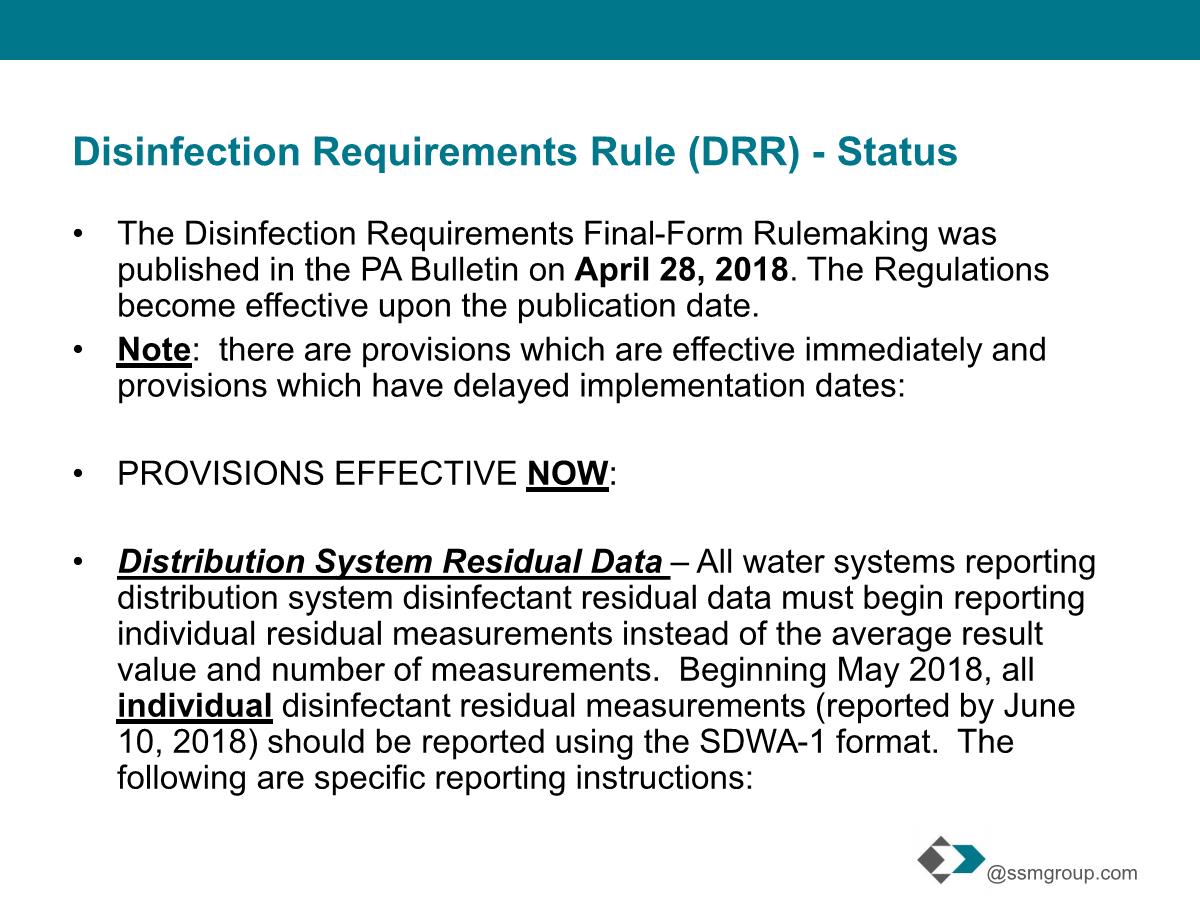REGULATORY UPDATE | Disinfection Requirements Rule
/The Disinfection Requirements Rule (DRR) was published in the PA Bulletin on April 28, 2018. The amendments are intended to protect public health through a multiple barrier approach designed to guard against microbial contamination by ensuring the adequacy of treatment designed to inactivate microbial pathogens and the integrity of drinking water distribution systems.
The significant requirements of the DRR fall into two categories: provisions that are effective immediately and provisions that have delayed implementation dates.
Provisions effective now:
- Distribution System Residual Data: All water systems reporting distribution system disinfectant residual data must begin reporting individual residual measurements instead of the average result value and number of measurements.
- Minimum Entry Point Disinfectant Residual: Water systems using filtered surface water (SW) or groundwater under the direct influence of SW (GUDI) sources must maintain a minimum disinfectant residual at the entry point (EP) of at least 0.20mg/L.
- Calculating & Reporting Log Inactivation: Water systems using filtered SW or GUDI sources must calculate the Giardia log (%) inactivation at least once/day during the hour of expected peak flow.
Provisions with delayed implementation:
- Sample Siting Plan: All community water systems, any non-transient non-community water system with chemical disinfection and any transient non-community water system with filtration of SW or GUDI sources or 4-log disinfection of GW sources must develop and submit a DRR sampling plan by October 29, 2018.
- Distribution System Minimum Residual: All community water systems, any non-transient non-community water system with chemical disinfection and any transient non-community water system with filtration of SW or GUDI sources or 4-log disinfection of GW sources must maintain a minimum disinfectant residual concentration in the distribution system of at least 0.2 mg/L (unless a higher number has been specified in a permit) beginning April 29, 2019.
- Nitrification Control Plan: Any community or non-transient non-community water system using chloramines or purchasing water treated with chloramines must develop and implement a nitrification control plan by April 29, 2019.
FOR MORE INFORMATION: Serena DiMagno, Sr. Environmental Consultant


